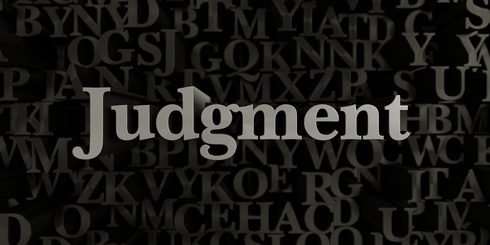Home » Bankruptcy » Page 7
The U.S. Court of Appeals for the Eleventh Circuit recently held, in a case of first impression, that “the Bankruptcy Code authorizes payment of attorneys’ fees and costs incurred by debtors in successfully pursuing an action for damages resulting from the violation of the automatic stay and in defending the damages award on appeal.” A copy of the opinion in Mary Beth Mantiply v. Patricia Nelson Horne is available at: Link to Opinion. Husband and wife filed for Chapter 7 bankruptcy in 2011 and received a discharge five months later. The husband passed away and his daughter was substituted as personal…
The U.S. Court of Appeals for the Ninth Circuit recently held that a debtor corporation’s sole shareholder and third parties who sold real property and services to the sole shareholder could be liable for fraudulent transfers. In so ruling, the Ninth Circuit held that the third parties were initial transferees of the debtor corporation’s funds because the sole shareholder paid the third parties with checks directly from a corporate account, even though the third parties did not have a pre-existing relationship or an ongoing relationship with the sole shareholder, his family, or any of his businesses. A copy of this…
The U.S. Bankruptcy Appellate Panel for the Eighth Circuit recently affirmed a bankruptcy court’s holding that a creditor held an unenforceable lien against a debtor’s real property because the property was owned by the entireties and the lien was thus avoidable under Bankruptcy Code § 522(f)(1). A copy of the opinion in CRP Holdings v. O’Sullivan is available at: Link to Opinion. The debtor and his wife purchased real property in Missouri in 1995. A limited liability company obtained a judgment against the debtor in Missouri and recorded the judgment in the county where the debtor lived. The debtor filed a…
The U.S. Court of Appeals for the Ninth Circuit recently held that, where husband and wife debtors fraudulently transferred assets, the creditor was entitled to the full sum the creditor would have recovered and was not limited to the amount of the collateralized debt. In so ruling, the Ninth Circuit reversed a bankruptcy court and trial court judgment in the creditor’s favor that the debt was non-dischargeable due to the debtor’s fraud, but improperly limiting the non-dischargeable debt to only the collateralized amount. A copy of the opinion in DZ Bank AG Deutsche Zentral-Genossenschaft Bank v. Meyer is available at: Link to Opinion.…
The U.S. Court of Appeal for the Eighth Circuit recently affirmed a bankruptcy court’s rejection of a proof of claim filed by a creditor where the claim was based upon a debt which was time barred by the creditor’s failure to comply with the applicable state law deadline for pursuing a deficiency judgment following a non-judicial foreclosure. A copy of the opinion in Melikian Enterprises, LLLP v. McCormick is available at: Link to Opinion. The underlying debt at issue arose from a commercial loan from the creditor to a company owned by the debtors which was secured by a mortgage against…
The U.S. Court of Appeals for the Sixth Circuit recently affirmed a bankruptcy court’s order granting the debtors’ motion to compel the trustee to abandon their home as property of the estate because it had little equity and thus little value for unsecured creditors. A copy of the opinion in Richard Jahn v. Philip Craig Burke is available at: Link to Opinion. Husband and wife debtors filed a petition under chapter 7 of the Bankruptcy Code, listing their home on their schedules as having an appraised value of $108,000 and a mortgage of $91,581. The bankruptcy trustee moved to evict the…
The U.S. Court of Appeals for the Fifth Circuit recently held that debts arising from a scheme to deprive mortgagees of surplus foreclosure sale proceeds were non-dischargeable, affirming the bankruptcy court’s judgment against the debtor in consolidated adversary proceedings filed by various lenders that held first mortgage liens. A copy of the opinion in Cowin v. Countrywide Home Loans, Inc. is available at: Link to Opinion. The debtor orchestrated a mortgage fraud scheme by which a straw buyer acquired property subject to a first mortgage at a condominium association’s foreclosure sale. The buyer then entered into a “tax-transfer loan agreement”…
The U.S. Court of Appeals for the Ninth Circuit recently held that a bankruptcy trustee was authorized to sell real estate free and clear of unexpired leases under 11 U.S.C. § 363(f), and the sale was not a rejection of the unexpired leases and therefore did not implicate 11 U.S.C. § 365(h). In so ruling, the Ninth Circuit adopted the minority approach established in Precision Indus., Inc. v. Qualitech Steel SBQ, LLC, 327 F.3d 537 (7th Cir. 2003), which held that sections 363 and 365 may be given full effect without coming into conflict with one another. By allowing the…
The U.S. Court of Appeals for the Eleventh Circuit recently held that section 707(b) of the Bankruptcy Code, which allows a bankruptcy court to dismiss a chapter 7 petition if it finds that relief would be an “abuse” as defined in that section, applies to a petition initially filed under chapter 13 and converted to chapter 7. A copy of the opinion in Pollitzer v. Gebhardt is available at: Link to Opinion. A debtor filed bankruptcy under chapter 13 of the Bankruptcy Code, which allows a debtor to restructure his debts and keep his assets by submitting a plan that provides…
The Bankruptcy Appellate Panel of the U.S. Court of Appeals for the Sixth Circuit recently held that the bankruptcy court lacked subject matter jurisdiction under the Rooker-Feldman doctrine to void the foreclosure of a mortgage lien that was executed by the debtors before bankruptcy, but recorded while the automatic stay was in effect. In so ruling, the BAP held that the mortgage was effective upon signing, the pre-petition lien survived the bankruptcy, the creditor’s exercise of its in rem rights did not implicate the discharge order, and the bankruptcy court incorrectly applied the exception to the Rooker-Feldman doctrine recognized in…
The Bankruptcy Appellate Panel of the U.S. Court of Appeals for the Sixth Circuit recently held that a mortgage foreclosure deficiency judgment lien may be avoided under 11 U.S.C. § 522(f)(2), reversing the bankruptcy court’s ruling to the contrary. A copy of the opinion in In re Antoinette Pace is available at: Link to Opinion. The debtor filed a chapter 13 bankruptcy, listing her residence in Ohio on her schedules with a value of $147,630. She also claimed the residence as exempt homestead in the amount of $132,900, the maximum allowed pursuant to Ohio law. On her Schedule D, the debtor…
The U.S. Court of Appeals for the Ninth Circuit recently held that for cram-down valuations, 11 U.S.C. § 506(a)(1) requires the use of “replacement value” based upon the adoption of the replacement value standard in Associates Commercial Corp. v. Rash, 520 U.S. 953, 956 (1997). In so ruling, the Ninth Circuit interpreted Rash to instruct that valuation of collateral in a cram down must be based on the debtor’s desires (i.e., the proposed use of the collateral in the debtor’s plan of reorganization), and without consideration of the value that the secured creditor would realize in an immediate sale. Accordingly,…










